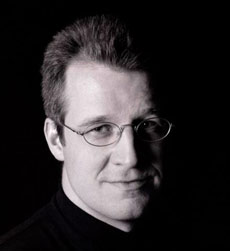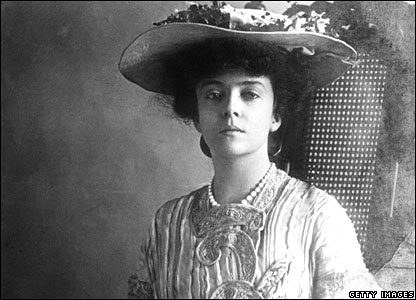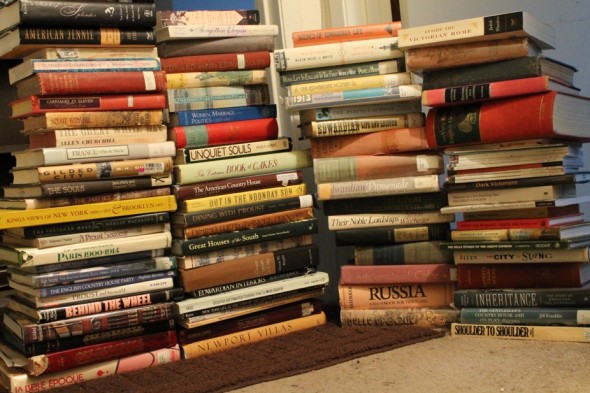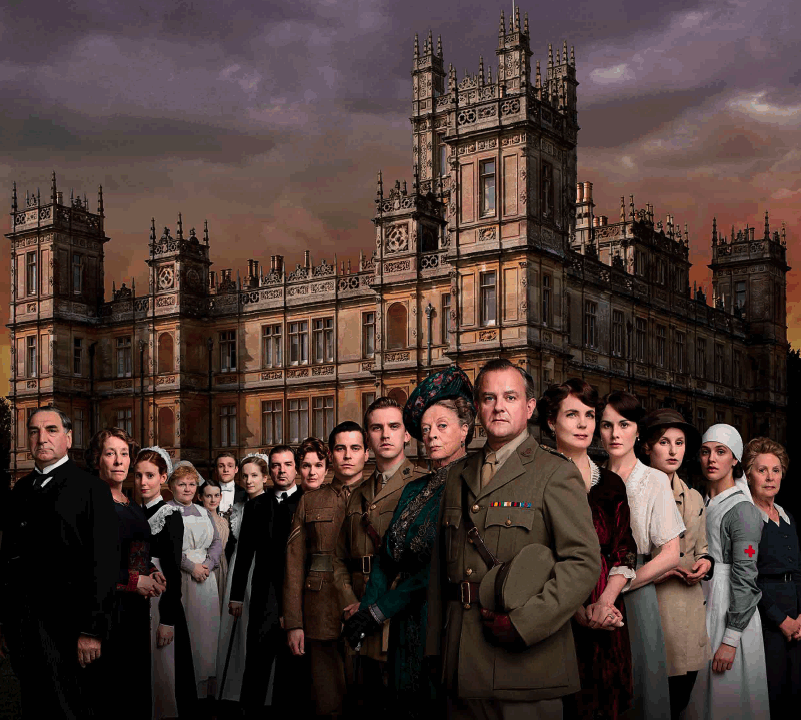 The 1970s saw a boom in nostalgia for the Edwardian era. The period influenced fashions and society, books about the period abounded, and a bevy of mini-series’ filled the television. After that decade, interest in the period appeared to fade–until now. In a slow, but steady trickle, non-fiction about the Edwardian era has began to return to the bookshelves. Joining Roy Hattersley’s The Edwardians (2005) and Juliet Nicolson’s The Perfect Summer: England 1911, Just Before the Storm (2007), we can now welcome the latest book on the block, The Vertigo Years: Europe, 1900–1914 by Philipp Blom. I was excited the moment I became aware of TVY’s imminent release and luckily, was able to snag an interview with Mr. Blom.
The 1970s saw a boom in nostalgia for the Edwardian era. The period influenced fashions and society, books about the period abounded, and a bevy of mini-series’ filled the television. After that decade, interest in the period appeared to fade–until now. In a slow, but steady trickle, non-fiction about the Edwardian era has began to return to the bookshelves. Joining Roy Hattersley’s The Edwardians (2005) and Juliet Nicolson’s The Perfect Summer: England 1911, Just Before the Storm (2007), we can now welcome the latest book on the block, The Vertigo Years: Europe, 1900–1914 by Philipp Blom. I was excited the moment I became aware of TVY’s imminent release and luckily, was able to snag an interview with Mr. Blom.

Europe, 1900–1914: a world adrift, a pulsating era of creativity and contradictions. The major topics of the day: terrorism, globalization, immigration, consumerism, the collapse of moral values, and the rivalry of superpowers. The twentieth century was not born in the trenches of the Somme or Passchendaele—but rather in the fifteen vertiginous years preceding World War I.
In this short span of time, a new world order was emerging in ultimately tragic contradiction to the old. These were the years in which the political and personal repercussions of the Industrial Revolution were felt worldwide: Cities grew like never before as people fled the countryside and their traditional identities; science created new possibilities as well as nightmares; education changed the outlook of millions of people; mass-produced items transformed daily life; industrial laborers demanded a share of political power; and women sought to change their place in society—as well as the very fabric of sexual relations.
From the tremendous hope for a new century embodied in the 1900 World’s Fair in Paris to the shattering assassination of a Habsburg archduke in Sarajevo in 1914, historian Philipp Blom chronicles this extraordinary epoch year by year. Prime Ministers and peasants, anarchists and actresses, scientists and psychopaths intermingle on the stage of a new century in this portrait of an opulent, unstable age on the brink of disaster.
Beautifully written and replete with deftly told anecdotes, The Vertigo Years brings the wonders, horrors, and fears of the early twentieth century vividly to life.
First, could you explain your background for those unfamiliar with you? How did you come to be a writer?
I was born in Germany and drawn to history, I suppose, through my love of stories, the layers of the past. I also lived in several European countries, and so the connections and differences between the countries began to interest me. I finally wound up doing a PhD in Oxford, where I also published my first novel. From there on I went into journalism to finance my first books – and the rest is history, at least as far as my work is concerned.
What is your objective with The Vertigo Years? Do you feel the fifteen years before WWI are vital to historians and to people? Does the study of that brief period have relevance to today?
The period I call the Vertigo Years, 1900-1914, is often seen as a sort of idyllic Indian summer before the great catastrophe of the War. Many people who were alive back then would be very surprised by this view, which we have imposed on history because we know what came afterwards – the terrible slaughter in the trenches. If you look at the evidence, I think, you can see a great deal of movement and upheaval even before the War, and reading peoples’ letters and diaries or newspapers of the period, the time seems to have been anything but idyllic and restful. There was change everywhere, in every area of life, and that is precisely what I want to convey by looking at the period, as far as that is possible, without seeing it through the prism of the War. Why is this period still so vital? Because it was the foundational moment of our world. Everything that makes up our world today, from globalization to quantum physics, from consumer society to feminism, from democratization to terrorism, was already formulated during this time. Does that have relevance to our time? Of course it does. It is perhaps asking too much for people to “learn from history”, but we can clearly recognize ourselves in the generation of our grandparents and great-grandparents, and in the things that dominated their lives.
How did you approach writing The Vertigo Years? What prompted you to write it in a chronological fashion?
I think it is important to gain the reader’s trust, to seduce him or her into following me to what I’m getting at, to the point I want to make, which may well be a theoretical one. The vehicle for this is storytelling. The chronological structure simply turned out to be a convenient way of telling stories. Life does not happen in an orderly fashion, it is a chaotic mass of experiences and events, and every structure we impose on it is artificial. Chronological, thematic, subject-based, by country, take your pick, they are just different ways of unraveling a dense and inextricably intertwined ball of facts and perceptions.
What sources did you draw from when writing your book? Were there any new discoveries that corrected or elaborated on past histories of the Edwardian era?
I tried to use the greatest possible variety of relevant sources. The period is very extensively researched and written about, so there was little point of trawling through statistics and government documents in archives, especially since I wanted to write a history of mentality, not a political history. I did spend some time in archives, and a lot with personal correspondences and newspapers from the time, though. Novels and other works of art are useful sources, too, as they can show you how someone particularly sensitive gave form to a particular experience. Once one has identified such an experience, however, it is important to create a wider picture, to see how many people were affected. Much of what we regard as seminal, avant-garde art today only affected a handful of people, and even Freud’s Interpretation of Dreams sold no more than 300 copies when it was published in 1899, but when we look at popular culture, at best-selling novels and stories in newspapers with large circulation, we get a much better sense of what most people where thinking and feeling. That’s what I’ve tried to do.
Did you find much similar today with this period in history? Anything very dissimilar?
I can recognize us quite clearly in that time, especially the sense of living with an open, uncertain history in which the only certainty appears to be change.
Based on reviews I’ve read, The Vertigo Years strips away the fond memories of the “golden summers” of myth. Did you find anything positive of the pre-WWI era? Was this era a study of deep contrasts, or was it full of gray areas?
But why would it not be positive? It was a tremendously creative time, intellectually and artistically the most seminal moment in Europe’s history, all compressed into less than a generation. Industrial development surged ahead, scientists and engineers made huge strides – it just helps to take away the idea of sepia-tinted quaintness and see the time as one as vital and as pulsating as our own.
Many histories on the Edwardian era tend to focus on royalties and personalities, such as King Edward VII, as representing the age. Do you find this true?
Of course that is true, to some extent. Personalities like Edward VII and Kaiser Wilhelm are representative in many ways, but the fact that so much is written about them may also have something to do with the almost insatiable nostalgia people appear to feel for a time in which, they think, everything was still solid and somehow better, more gentle and more graceful than today. Not so for most people! I am more interested in seeing how whole societies lived. That is never absolutely possible, especially as the most numerous class, the workers and agricultural labourers, are the ones who leave the fewest written documents, certainly of a personal kind. They appear in statistics, but you have to look at the middle classes for a wealth of diaries, letters, novels, etc. The higher you go up the ladder, the more plentiful the documentation. I regard it as a challenge to redress the balance a little, as far as possible.
Were the years 1900-1914 a complete break from the manners and mores, fears and doubts, and attitudes of the 19th century, or do you think there was a natural, gradual change that occurred even before the turn of the century?
There is never any such thing as a complete break with the past. Even today, we carry with us attitudes, feelings and longings from pre-modern and even pre-civilized days. Things don’t just vanish within a generation and of course change is gradual and uneven, between regions, countries, classes, sexes, generations, and even within individuals. We are always many things at once, but one can observe that the preoccupations of a society appear to change, as do the ways of articulating them and reacting to them. To describe that is, I think, the business of a good historian.
Did you think WWI inevitable?
No, much against received opinion it certainly was not. There is an idea that war was simply inevitable because of attitudes, colonial policies and the arms race, but would we today (assuming we would have lived) have regarded a Third World War inevitable if the Cuban Missile Crisis of 1962 had led to hostilities between the US and the USSR?
There were other international crises before 1914 (think of the two Moroccan crises 1905 and 1911 or the Balkan wars in 1912) which presented much stronger reasons for going to war, but each time, diplomacy prevailed, and it might have prevailed in August 1914, but for the fact that many decision makers were away from the centres of government, on holiday. I am no conspiracy theorist and I do not believe in the Grand Plan that is supposed to have existed all along, and recent research demonstrates that great parts of the population were anything but enthusiastic about the outbreak of war when it finally happens. Lead articles in patriotic newspapers were full of fervour and high rhetoric, but personal letters and diaries are not. If anything, there was a dangerous sense of fatalism, a resigned idea that war would break out at some point, the question was only when. It is true that the empires were competing with each other and that there was a dangerous arms race going on in a very heated-up atmosphere, but the actual decision to go to war was made by no more than a dozen people around Europe. I believe that there might have been a crisis in 1915, another one in 1917 and 1921, and then the nations might simply have moved on. The financial strain on national economies was already colossal, and counter movements such as the Socialists and Social Democrats were gaining force, particularly in Germany and France. So no, nothing is inevitable in history.
Lastly, do you feel you have done the period justice with one volume? Were there things you could have added but chose not to?
Have I done justice to the period in under 500 pages? Could I have done in 5,000 pages? Certainly not. But I can give a sense, a central idea, an interpretation that might shed new light on familiar things. History needs to be rewritten every generation, and I am part of this process. There is no definitive history, and in a while someone will come along and rewrite the early twentieth century in a different mold.
Preview The Vertigo Years at Google Books | Purchase The Vertigo Years at Amazon.com: US or UK



